A Superhero Similar to Homo Sapiens
Most recently, the well-known liberal political commentator, Cenk Uygur, tweeted this remark about religion. His attention, however, was unusually focused on the Christian story and the foundational person of Christianity, i.e. Jesus Christ.
All of the religions are such obvious mythology. Yet serious people are forced to have nonsensical conversations about mythical creatures like the superhero who could turn bread into fish (strange super power choice) and the Sky God who is peculiarly similar to Homo Sapiens.
— Cenk Uygur (@cenkuygur) May 25, 2021
Uygur’s sentiments are shared by many Western progressives. Though he may claim to be a voice for ethnic minorities in America, his familiar way of dismissing the Christian story is strangely from post-enlightenment European. What Cenk is attempting to convey with his tweet here is that the perceived embellishment of the Christian story makes obvious its worthlessness in the current and “enlightened” cultural context.
It is strange to see Cenk Uygur dismissing the Christian story in such a public and flippant manner, but at the same time, it shouldn’t be surprising when we consider that this man has rooted for political leaders such as the Clintons, Obama, Biden, and others of the same ilk who have conducted bloody regime-change operations abroad and perpetuated brutal mass incarceration of minorities at home. What would be even more ironic is that Uygur’s desire for social justice, despite its obvious superficiality, can only be made authentic in the pro-human revolution initiated by Christ.
There is an anthropological brilliance in what Uygur regards as “the superhero” who turns “bread into fish” and the “Sky God who is peculiarly similar to Home Sapiens.” Uygur here is obviously referring to the episode in the four Gospels where Jesus multiplies the loaves and fishes and feeds a crowd of five thousand (Matthew 14:13-21; Mark 6:31-44; Luke 9:12-17; John 6:1-14). Why is Mr. Uygur singling out this particular event for ridicule? Could it be because what Jesus does in this passage is particularly threatening to Uygur’s socio-political ideology? That could be a possibility, but for the sake of constructive dialog, we must assume that Uygur is simply unfamiliar with this episode of Jesus’ life.
What is the anthropological impact of this passage, aside from the theological explanation that the supernatural miracles of Christ are confirmation of His deity? If Christ were to confirm His divinity using miracles, why must these miracles always serve to elevate the hungry, the poor, the marginalized, the weak, the oppressed, and the human? And why must Christ perform these miracles as someone who is “peculiarly similar to Homo Sapiens?” The answers to these questions lie in the fact that the Christian story departs quite radically from all other religious and political myths in its perspective on violence.
In one of his fascinating conversations, David Gornoski argued that Christ’s multiplication of the fishes and loaves is an innovative way of averting violence. This is a striking observation when we see in history how bloody revolutions often sprang from famine and economic misery. The masses, in an all too familiar method of using violence against violence, would often riot and revolt until the quenching of their thirst for blood with human sacrifice. In many instances, these human sacrifices would be deposed monarchs, dictators, or the entire nobility. These sacrifices, however, never succeeded in rooting out injustice.
The way of revolutionary violence mirrors that of ancient societies that would ritually sacrifice a single victim in an attempt to check mimetic crowd violence. In order to quench evil, the ancients reasoned, we must employ evil itself. We see signs of ancient sacrifice violence in stories like that of Oedipus Rex, where Oedipus must be expelled due to crimes of murder and incest, or in Ramayana, where Ravana must be defeated because he has kidnapped the woman of the gods, or in Beowulf, where the cave-lurking monster and his mother must be defeated at all cost to save the village.
The realistic and gritty account of Christ’s crucifixion makes it impossible for us to hide our sacrificial violence with mythological embellishments. Therefore, violent revolutions can no longer be sustained; they often spiral out of control. Many violent revolutions result in new reigns of terror more extreme than the former. The Soviet Union, the Maoist revolution in China, the Khmer Rouge, all have exterminated millions of lives; they confirm what Christ said to His disciple Peter two thousand years ago: “Put your sword back in its place, for all who draw the sword will die by the sword” (Matthew 26:52). Christ enters human history and comes to us saying:
“You have heard that it was said, ‘Eye for eye, and tooth for tooth.’ But I tell you, do not resist an evil person. If anyone slaps you on the right cheek, turn to them the other cheek also. And if anyone wants to sue you and take your shirt, hand over your coat as well. If anyone forces you to go one mile, go with them two miles. Give to the one who asks you, and do not turn away from the one who wants to borrow from you.
“You have heard that it was said, ‘Love your neighbor and hate your enemy.’ But I tell you, love your enemies and pray for those who persecute you, that you may be children of your Father in heaven. He causes his sun to rise on the evil and the good, and sends rain on the righteous and the unrighteous. If you love those who love you, what reward will you get? Are not even the tax collectors doing that? And if you greet only your own people, what are you doing more than others? Do not even pagans do that? Be perfect, therefore, as your heavenly Father is perfect.
–Matthew 5:38-48 (NIV)
Christ makes it abundantly clear that when we use violent force to shape and control our neighbors we act against nature itself. His way of dealing with violence is not more violence, as is the way of power-hungry politicians, but rather the way of voluntary discourse, innovation, and self-sacrifice. Christ’s statements about “turning the other cheek” can certainly be described as an anthropological revelation of putting skin into the game of solving problems, something that flies in the face of politicians and their apologists in media.
What does it mean to put skin into the game and solving the problems of society? Christ showed that we must employ voluntary discourse as well as creativity in our mission to heal the human race. Why creativity? Creativity presupposes the Creator, Berdyaev says. Creativity, being a gift from the Creator, is completely natural and does not rely on coercion of any kind. In Jesus’ miracles, we see supernatural creativity as well as voluntary interaction. When He saw the paralyzed man trying to get into the pool for healing (John 5:6), Christ asked, “Do you want to get well?” At Jericho, when He was confronted by a blind man (Mark 10), Christ asked, “What do you want me to do for you?” When a leper came to Jesus and begged Christ to heal him (Mark 1:40-41), Jesus answered, “I am willing. Be healed!”
If we are to be “serious,” as Cenk Uygur demands from us in his tweet, we must take the story and person of Christ as seriously as possible. We are mere mortals and we do not have the supernatural ability to heal people, but we are nevertheless blessed with the gift of innovation and creativity. Our reasoning faculty comes from God and nowhere is this more emphasized than in the story of Christ. Brute force and violent coercion, however, comes from the perversion of God’s creation. Violence has the horrible tendency to keep us locked inside a mental cage of self-harm and resentment. The reliance upon violence is akin to demonic possession, and when Jesus confronts the possessed, He exorcizes the demons of violence (Matthew 8:28-34).
While performing His miracles, Christ looks at the human race and says, “Very truly I tell you, whoever believes in me will do the works I have been doing, and they will do even greater things than these” (John 14:12). Why does He say, we will do greater things than He did? One possibility is that Christ knows of humanity’s gift of innovation and creativity. Though we may not have the supernatural qualities of Christ, we have the potential for acquiring the same mind as His, especially in His mission to heal and feed humanity.
With science, art, and many other creative endeavors humanity has the potential to transform the world. In order to transform the world, which is something that Cenk Uygur must claim to attempt in his demand for seriousness, we must steer clear of crucifying our very own scapegoats on the altars of trending political thoughts. We must be willing to go up on the cross with which we seek to crucify our political or ideological opponents. Indeed, we must pay special attention to Christ, imitate Him, abide in Him, and love our neighbors with self-sacrificing, Christlike love.
If humanity should strive to be sensible then we must abandon our “nonsensical” efforts to purge our neighbors. Indeed, our very survival depends on talking about and imitating the Superhero who “turns bread into fish” and appears “peculiarly similar to Homo Sapiens.”

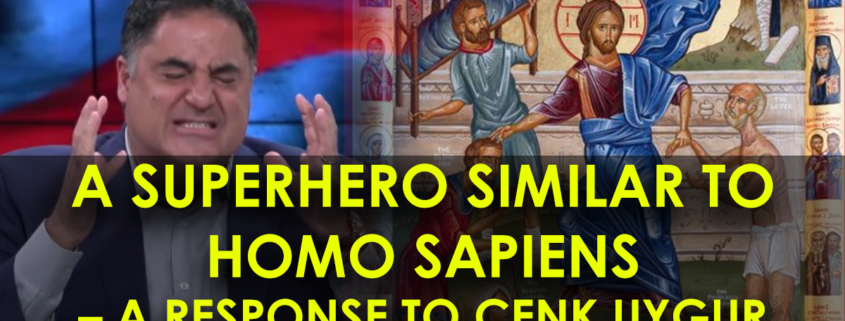

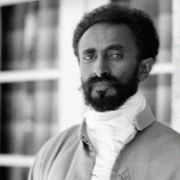

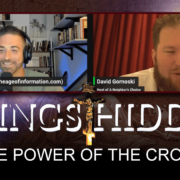

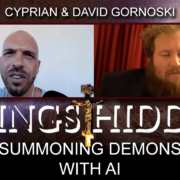

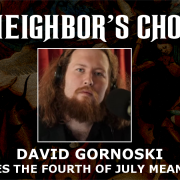
Leave a Reply
Want to join the discussion?Feel free to contribute!